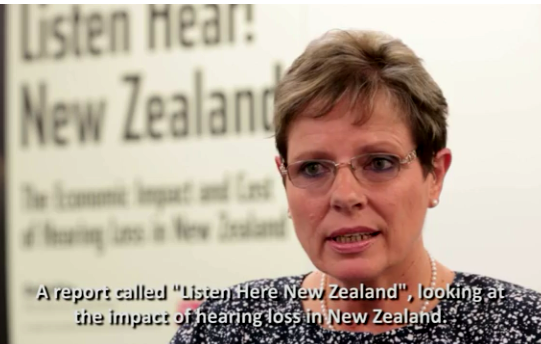Blog
-

Deaf and hard of hearing community New Zealand’s most neglected sector.
 29 Mar , 2017
29 Mar , 2017
Deaf and hard of hearing community New Zealand’s most neglected sector.
Hearing loss was estimated to cost the New Zealand economy more than $957 million last year and an advocate for the community claims the deaf and hard of hearing are the country’s most neglected sector.
A new report commissioned by the National Foundation for the Deaf estimated 880,350 people in New Zealand (18.9 per cent) suffered from some form of hearing loss last year with the total cost of hearing loss reaching $4.9 billion. Within that, the cost to the economy was estimated at $957.3m.
The report, Listen Hear! New Zealand: Social and Economic Costs of Hearing Loss in New Zealand, put the cost to the health system at $131.8m and productivity losses at $552.4m with informal care, efficiency losses and other costs making up the remaining component of the economic costs.
National Foundation for the Deaf chief executive Louise Sinden-Carroll said the report highlighted the need for the Government to set up a working group to look at the findings and investigate what could be done better.
“It’s quite surprising. Not one realises. It’s very hidden. New Zealand really has to step up,” she told the Herald.
“This is the sector that has been the most neglected and the greatest hardship I’ve seen has been in this sector. People can’t get jobs.”
Sinden-Carroll said the major problem in New Zealand was the lack of funding available to help the hearing impaired access the technology they needed to improve their quality of life, allow them to continue to be productive members of society and decrease the economic cost the country.
“You have people who want to work and can’t work to their potential because they don’t have the technology,” she said.
As an example, the Government’s hearing aid subsidy of $511 per ear once every six years was usually not enough to cover the cost of new hearing aids, which were often out of date within four years, she said.
Ministry of Health group manager of disability support services Toni Atkinson said the Ministry of Health had not yet had time to consider the report so was unable to comment on its findings.
“The Ministry offers a wide range of support for people with hearing loss, such as ministry-funded hearing aids, subsidies for hearing aids for eligible people and cochlear implant services for eligible children and adults.”
Starting again:
National Foundation for the Deaf chief executive Louise Sinden-Carroll has worn hearing aids for the last 20 years since she was criminally assaulted while overseas at the age of 39.
I really had to start again. I came from a hearing world and wasn’t even aware I was processing language.”
She said the type of hearing loss she had meant she lost high tones but would also miss whole words.
“I would not have been able to leave my home without the technology.”
Her hearing aids were funded in full by ACC so she was able to go to university and has since completed a masters and a doctorate.
“It was incredibly difficult – incredibly hard following lectures. I used to get so exhausted,” she said.
Source: NZ Herald, The National Foundation for the Deaf, Listen Hear! New Zealand
Image credit: Listen Hear! New Zealand, Louise Sinden-Carroll





























































































































































































































































































































































































































































































































































































